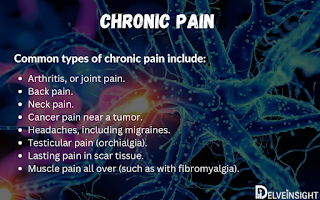Transforming Hemophilia Management: Gene Therapy's Potential
Hemophilia, a rare but severe bleeding disorder, has long been a challenge for patients and healthcare providers alike. It is primarily characterized by impaired blood clotting due to a deficiency in clotting factor proteins. Hemophilia can be classified into several types, including Hemophilia A, Hemophilia B, Hemophilia C, and even Von Willebrand Disease. For years, patients have relied on frequent infusions of clotting factor concentrates to manage their condition. However, recent breakthroughs in gene therapy, such as Fidanacogene Elaparvovec, have opened up new possibilities for hemophilia treatment.
Understanding Hemophilia
Hemophilia is an inherited disorder, typically affecting males. Hemophilia A and Hemophilia B are the most common forms, caused by deficiencies in clotting factors VIII and IX, respectively. Hemophilia C, though rarer, involves a factor XI deficiency. Von Willebrand Disease, on the other hand, is characterized by a deficiency or dysfunction of von Willebrand factor, which plays a crucial role in clotting.
Hemophilia Prevalence
Hemophilia is a rare condition, with Hemophilia A prevalence being the most common form, affecting approximately 1 in 5,000 male births. Hemophilia B is even less common, occurring in about 1 in 25,000 male births. Hemophilia C is much rarer, primarily affecting the Ashkenazi Jewish population. Von Willebrand Disease is more prevalent, affecting up to 1% of the general population.
The Promise of Gene Therapy
For individuals with hemophilia, gene therapy offers a glimmer of hope. Fidanacogene Elaparvovec, an investigational gene therapy, has shown remarkable potential. It works by delivering a functional copy of the deficient clotting factor gene directly into the patient's liver cells. This enables the body to produce its own clotting factor, reducing or eliminating the need for frequent infusions.
FDA Approval and Beyond
The gene therapy community eagerly awaits the FDA's decision on Fidanacogene Elaparvovec. If approved, it could be a game-changer, offering patients a one-time treatment that could significantly improve their quality of life. Beyond Fidanacogene Elaparvovec, other gene therapies for hemophilia are in development, promising further advancements in the field.
In conclusion, gene therapy for hemophilia represents a remarkable leap forward in the treatment of this challenging condition. With ongoing research and development, the future of Gene Therapy for Hemophilia looks promising. As we await the FDA's decision on Fidanacogene Elaparvovec, we can only anticipate the transformative impact it may have on the lives of hemophilia patients, offering them newfound freedom and hope for a brighter future.
Latest Reports Offered By DelveInsight-
Coagulation Analyzers Market
Coagulation Analyzers Market By Product Type (Instruments [Automated Analyzers, Semi-Automated Analyzers, And Manual Analyzers] And Reagents And Consumables), Test Type (Fibrinogen Testing, Activated Clotting Time Testing, D-Dimer Testing, Prothrombin Time, And Others), Technology (Optical Technology, Mechanical Technology, Electrochemical Technology, And Others), End-User (Hospitals, Diagnostic Centers, And Others), and geography is expected to grow at a steady CAGR forecast till 2028
Hemoconcentrators Market
Hemoconcentrators Market By Product Type (Pediatric Hemoconcentrators And Adult Hemoconcentrators), By End-User (Hospitals And Ambulatory Surgical Centres), and by geography is estimated to register a growth at a remarkable CAGR forecast during 2023-2028 owing to a surge in the cases of cardiovascular diseases and growing burden of geriatric population globally
Spinal Stenosis Devices Market
Spinal Stenosis Devices Market By Product Type (Interspinous Spacers, Stabilization Systems, Spinal Arthroplasty Systems, And Interbody Fusion Devices), By Application (Lumbar Spinal Stenosis, Cervical Spinal Stenosis, And Thoracic Spinal Stenosis), By End-User (Hospitals, Ambulatory Surgical Centres, And Others), and by geography is estimated to register a growth at a remarkable CAGR forecast during 2023-2028 owing to increasing prevalence of spinal stenosis and rising burden of geriatric population.
Ocular Implants Market
Ocular Implants Market By Type (Intraocular Lenses, Corneal Implants, Glaucoma Implants, Artificial Iris, And Others) By Material (Biodegradable And Non-Biodegradable), By Application (Cataract, Glaucoma Surgery, Oculoplasty, Drug Delivery, Macular Degeneration, And Others), By End-User (Hospitals, Eye Speciality Clinics, And Ambulatory Surgical Centres) and by geography is estimated to register a growth at a remarkable CAGR forecast during 2023-2028 owing to surge in the cases of various eye disorders and growing burden of geriatric population globally
Carpal Tunnel Release System Market
The Carpal Tunnel Release System Market By Type (Endoscopic Carpal Tunnel Release System And Open Carpal Tunnel Release System), By End-User (Hospitals, Ambulatory Surgical Centres, And Others), and by geography is estimated to register a growth at a remarkable CAGR forecast during 2023-2028 owing to rising cases of workplace associated carpal tunnel syndrome and increasing prevalence of carpal tunnel syndrome among women.
Related Reports by DelveInsight-
scedosporium infection market | autoimmune pulmonary alveolar proteinosis market | rosai-dorfman disease market | sandhoff disease market | b-cell chronic lymphocytic leukemia market | bladder cancer market | trichomoniasis market | bile duct cancer market | resorbable vascular scaffold market | salivary gland infection market | ischemic stroke market | paget's disease market | ventricular assist devices market | vascular stents market | vascular graft devices market | bladder scanners market | b-cell non-hodgkin lymphoma market | basal cell carcinoma market | birch allergy market | vein illumination devices market
Recent Blog’s By DelveInsight:
Insights Into The Cutaneous T-cell Lymphoma Treatment Market
Roche’s HEMLIBRA: A Game Changer in Hemophilia A Treatment Landscape
How Will Emerging Therapies Drift the Amyotrophic Lateral Sclerosis (ALS) Treatment Landscape
How are Technological Trends and Innovations Reshaping the Dementia Care
Assessing the Major Growth and Ongoing Developments in the Clinical Diagnostics Market
Non-opioid Analgesics Chronic Pain Treatment: Savior of Underserved Patients
Evaluating the Key Trends and Technologies Shaping the Future of Dentistry

.png)


Comments
Post a Comment